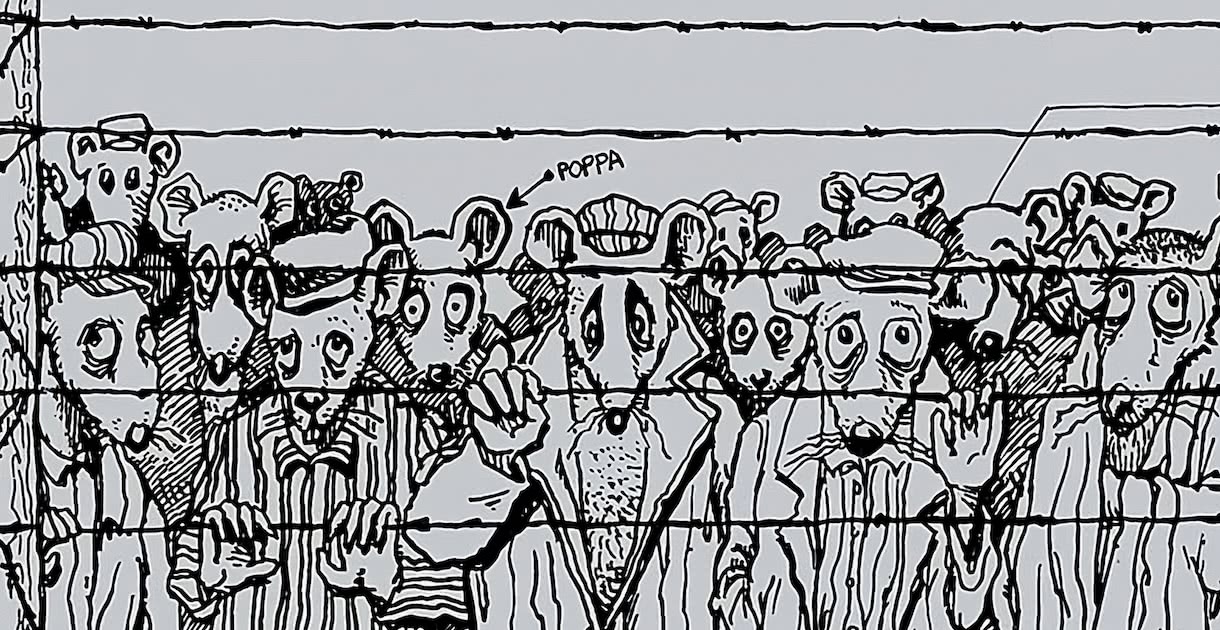Shaunskull’s recent video about Palestine reminded me how much Maus blew me away.
During the 1990s and early 2000s, any media referencing the Holocaust, or even WWII, was nominated for its medium’s most prestigious awards. Think Schindler’s List, Band of Brothers, Medal of Honor. The list goes on. Since I viewed these as more made for educational purposes than entertainment, I often conflated them with “Oscar Bait” (or the non-film equivalent in its medium.) So when I dove deep into comics in my late teens, I kind of avoided Maus because, in my mind, it would be a slog, something I’d have to “work” my way through instead of simply enjoy.
Boy was I wrong.
Not only was Maus educational, it personally affected me in a lot of ways I hadn’t imagined. Instead of a story about one man’s journey through Auschwitz but with cartoon animals instead of people, Maus covers the son’s difficulty grappling with his father’s trauma while dealing with the negativity his father has in the moment. And on top of that, it’s a meta-narrative about the making of itself. Art Spiegelman even discusses the inherent problems with caricaturing different groups of people and the implications of those choices.

One memorable scene involves his wife asking whether she would be drawn as a mouse, even though she’s not Jewish. Spiegelman jokes that, since she’s French, she’ll be a frog. Like it would’ve in real life, that joke doesn’t land as he intends it. After all, she’s not asking a practical question (“How will my caricature be drawn?) but an emotional one (“Do you consider me as part of your family?”) And even though we, the audience, can see her drawn as a mouse, she doesn’t know whether or not he views her intimately enough to illustrate her as part of his in-group.
Those sorts of scenes are littered throughout the story. While the focus is on Spiegelman’s father’s horrendous experiences surviving the most notorious of all concentration camps – which is a story absolutely deserving being told on its own – the graphic novel, as a whole, ends up being so much more than just that story, largely because it’s so personal and demonstrates as much vulnerability on the author’s part as of his subject in sharing it.
Share Your Pick!
I’ve opened up comments specifically for you to respond! Since this isn’t social media – it’s a goshdarn blog! – I have no incentive to force “engagement”. Angry responses will be blocked – as they should be – and good-faith arguments will get respectful responses.
Personally, I hate how depersonalized social media has become. Everything is less a diary than a portfolio, which sucks. (Ironically, blogs became portfolios, too, so hopefully I’m bucking that trend to some extent.) The whole reason I opened a blog is for friends and family to communicate with me and for me to find other folx to communicate with.
So seriously: What lived up to the hype? What exceeded the hype? Put your comments below (email or other account required, but hopefully I’ve made it easy) and let’s make the internet fun again!
- Hero Image: from Maus: A Survivor’s Tale, copyright Pantheon Books, believed to be used in accordance with fair use.

What do you think?